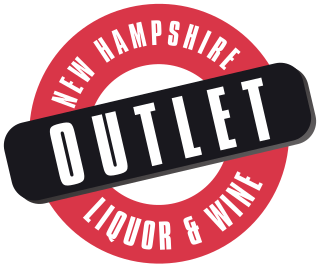
The Oregon Liquor and Cannabis Commission (OLCC), formerly known as the Oregon Liquor Control Commission, is a government agency of the U.S. state of Oregon. The OLCC was created by an act of the Oregon Legislative Assembly in 1933, days after the repeal of prohibition, as a means of providing control over the distribution, sales and consumption of alcoholic beverages. To this end, the agency was given the authority to regulate and license those who manufacture, sell or serve alcohol.

Alcoholic beverage control states, generally called control states, less often ABC states, are 17 states in the United States that have state monopoly over the wholesaling or retailing of some or all categories of alcoholic beverages, such as beer, wine, and distilled spirits.

The Texas Alcoholic Beverage Commission, or TABC, is a Texas public agency responsible for regulating, inspecting, and taxing the production, sale, and use of alcoholic beverages within the state. The agency was established in 1935 and is headquartered in Austin.
Alcoholic Beverage Control or Alcoholic Beverage Commission (ABC), or variants thereof, typically refer to a U.S. state's regulatory control over the wholesaling or retailing of some or all categories of alcoholic beverages. In alcoholic beverage control states, the state has a monopoly over some or all such sales. Examples of state agencies that oversee such arrangements include:

The treasurer and receiver-general of Massachusetts is an elected constitutional officer in the executive branch of the U.S. state of Massachusetts. Originally appointed under authority of the English Crown pursuant to the Charter of the Massachusetts Bay Company, the office of treasurer and receiver-general became an elective one in 1780. Sixty-one individuals have occupied the office of state treasurer over the ensuing centuries. The incumbent is Deb Goldberg, a Democrat who took office January 21, 2015.

The California Department of Alcoholic Beverage Control (ABC) is a government agency of the state of California that regulates the manufacture, distribution, and sale of alcoholic beverages.

The New Hampshire Liquor Commission (NHLC) is a government agency of the U.S. state of New Hampshire. The commission regulates the sale of alcoholic beverages in New Hampshire, one of 17 alcoholic beverage control states.
The Alcoholic Beverage and Cannabis Administration (ABCA) is an independent adjudicatory body of the District of Columbia, in the United States. It was formerly known by other names, including Alcoholic Beverage Control Board and Alcoholic Beverage Regulation Administration.

A liquor license is a governmentally issued permit for businesses to sell, manufacture, store, or otherwise use alcoholic beverages.
The Virginia Alcoholic Beverage Control Authority is one of the eleven public safety agencies under the Secretariat of Public Safety and Homeland Security for the Commonwealth. The agency administers the state's ABC laws. ABC stores are the only retail outlets in Virginia where customers may purchase distilled spirits. The profits that Virginia ABC contributes are collected from sales of distilled spirits at ABC stores, taxes collected on beer and wine sales, violation penalties and license fees. Since its establishment in 1934, Virginia ABC has contributed more than $9 billion to the Commonwealth's general fund. Virginia ABC employs more than 4,000 people statewide.

Oklahoma allows any establishment with a beer and wine license to sell beer and wine up to 15% ABV, under refrigeration.

Alcohol laws of New York are a set of laws specific to manufacturing, purchasing, serving, selling, and consuming alcohol in the state of New York. Combined with federal and local laws, as well as vendor policies, alcohol laws of New York determine the state's legal drinking age, the driving under the influence limit, liquor license requirements, server training, and more.

The state laws governing alcoholic beverages in New Jersey are among the most complex in the United States, with many peculiarities not found in other states' laws. They provide for 29 distinct liquor licenses granted to manufacturers, wholesalers, retailers, and for the public warehousing and transport of alcoholic drinks. General authority for the statutory and regulatory control of alcoholic drinks rests with the state government, particularly the Division of Alcoholic Beverage Control overseen by the state's Attorney General.

The serving of alcohol in the Commonwealth of Massachusetts is governed by the Alcoholic Beverages Control Commission (ABCC), which is responsible for issuing licenses and permits for all manufacturers, wholesalers and importers, out-of-state suppliers, brokers, salespeople, warehouses, planes, trains, ships, ship chandlers and vehicles transporting alcoholic beverages.
Blue laws, also known as Sunday laws, are laws that restrict or ban some or all activities on specified days, particularly to promote the observance of a day of rest. Such laws may restrict shopping or ban sale of certain items on specific days. Blue laws are enforced in parts of the United States and Canada as well as some European countries, particularly in Austria, Germany, Switzerland, and Norway, keeping most stores closed on Sundays.

The production of distilled spirits in New Jersey has not been a large industry in the state. Strict alcoholic beverage control laws in place during and after Prohibition (1919–1933) prevented the industry from growing for almost a century. In 2013, the state passed a law creating a craft distillery license. and issued the first new distillery license since Prohibition to Jersey Artisan Distilling.
The Tennessee Alcoholic Beverage Commission (TABC) is a Tennessee state government agency responsible for licensing or permitting participants in the alcoholic beverages industry in Tennessee. The agency is headquartered in Nashville, Tennessee. The agency has a three-member commission, consisting of one member each from West Tennessee, East Tennessee, and Middle Tennessee. As of July 2024, the executive director is Russell Thomas.











